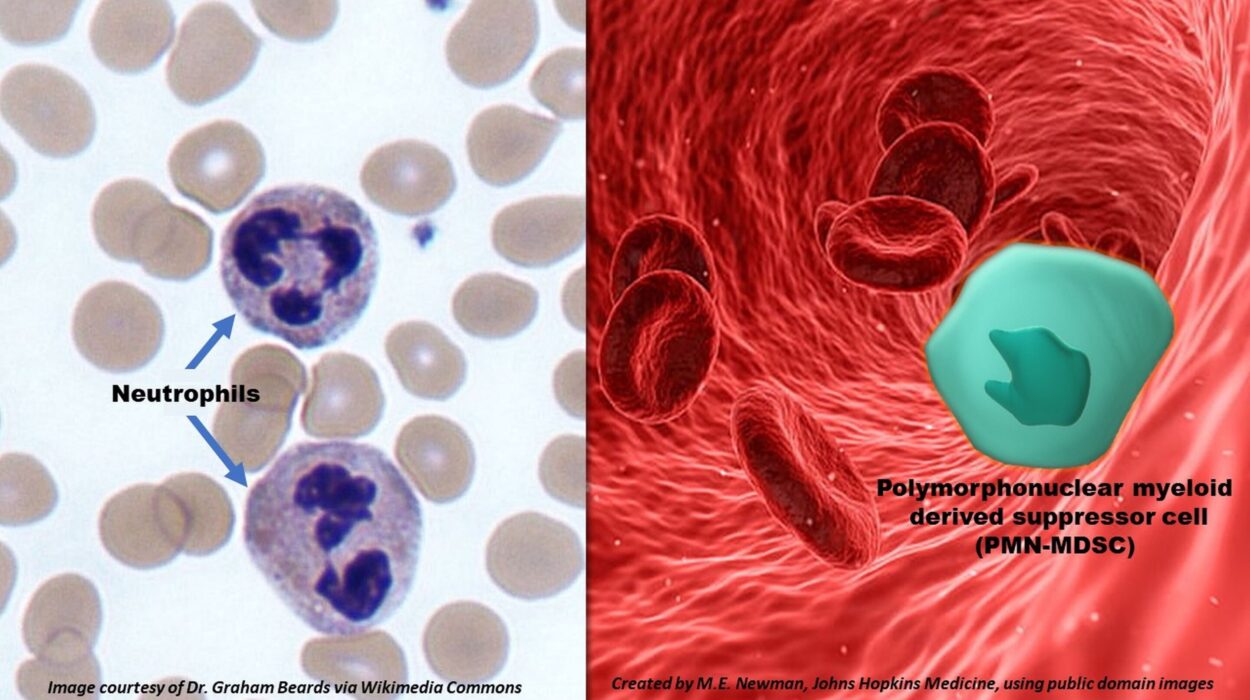Imagine waking up not groggy and exhausted, but refreshed and alive, your mind clear and ready to meet the day. Imagine your body moving with ease, free from the stiffness of inactivity or the weight of processed foods. Picture the glow of mental peace, the confidence of strength, and the quiet joy of knowing you’re truly taking care of yourself—not chasing a temporary fix, but living a life that fuels you from the inside out.
This isn’t a fantasy reserved for wellness gurus or elite athletes. It’s a reality that unfolds when you decide, truly and deeply, to commit to a healthy lifestyle—not as a trend or a punishment, but as a daily act of self-love. The journey toward health isn’t about perfection or six-pack abs. It’s about energy, resilience, and connection—to yourself, to nature, to others. And the truth is, science backs it all up.
Living well isn’t about restriction. It’s about abundance—the abundance of fresh air, real food, deep rest, nourishing movement, and authentic relationships. A healthy lifestyle is not one choice—it’s a constellation of decisions made each day, in small moments, that together shape a vibrant, thriving life.
The Foundation of Physical Well-Being
Health begins in the body. It is the vessel through which you experience every moment of your life, from laughter with friends to the quiet act of breathing. Yet for many, this incredible machine is taken for granted until something breaks. Reclaiming physical health is not about aesthetic ideals; it’s about honoring the incredible systems that keep us alive.
Nutrition plays a central role. Your body runs on what you feed it, and modern science has consistently shown that diets rich in whole foods—vegetables, fruits, whole grains, legumes, lean proteins, and healthy fats—support longevity and vitality. Processed foods, high in refined sugars, saturated fats, and artificial additives, disrupt this delicate balance, triggering inflammation, metabolic stress, and chronic disease.
But food is more than fuel; it’s emotional. It’s cultural. It’s tied to memory and identity. Healthy eating doesn’t mean deprivation. It means rediscovering the pleasure of real, flavorful, nourishing food. It means cooking, sharing meals, and listening to your body’s natural hunger and fullness cues—signals often lost in a world of fast food and endless snacking.
Equally vital is movement. Your body was not designed to sit for hours in front of screens. It craves motion. Regular physical activity—whether it’s dancing, hiking, swimming, or strength training—improves circulation, strengthens muscles and bones, regulates hormones, and protects the brain. More than that, it sparks joy. Exercise releases endorphins and elevates mood. It’s medicine in motion.
Sleep, too, is a pillar of health that cannot be ignored. Chronic sleep deprivation impairs memory, increases stress, weakens immunity, and accelerates aging. Good sleep hygiene—consistent bedtime routines, a dark quiet room, screen-free evenings, and natural light during the day—nurtures your circadian rhythms, allowing your body to heal, grow, and recharge.
Finally, there’s hydration—the often-overlooked keystone of wellness. Water supports every function, from digestion to detoxification. Even mild dehydration can cloud thinking and dampen energy. Drinking enough pure, clean water each day is one of the simplest and most powerful ways to support your body’s natural balance.
Mental Health Is Health
The mind is not separate from the body. Every thought, every emotion, every worry or moment of gratitude ripples through your nervous system, affecting hormones, immune responses, and even gene expression. In recent years, science has begun to catch up with what ancient wisdom has long known: a truly healthy lifestyle must nourish the mind.
Stress is one of the most insidious threats to modern health. Chronic stress raises cortisol levels, disrupts sleep, weakens immunity, and increases the risk of anxiety, depression, heart disease, and metabolic disorders. More subtly, it steals your joy and erodes your sense of connection and purpose.
Managing stress doesn’t mean eliminating all responsibilities or becoming indifferent. It means learning to respond rather than react. Techniques like mindfulness meditation, breathwork, yoga, journaling, and time in nature have been shown to lower stress hormones, improve brain function, and enhance emotional resilience.
Mental health also requires social support. Humans are wired for connection. Loneliness is as dangerous to health as smoking or obesity. Cultivating friendships, nurturing family bonds, and engaging in community activities can profoundly enhance well-being. If you’re struggling, therapy is not a weakness—it’s a powerful tool for healing and self-understanding.
Equally important is your inner dialogue. The stories you tell yourself shape your reality. A healthy lifestyle includes self-compassion, positive self-talk, and the willingness to forgive yourself for setbacks. Growth is not linear, and perfection is not the goal. Kindness to yourself is not indulgent—it’s essential.
Building Habits That Last
Knowledge is not the same as action. Most people know what they should do to be healthier, but struggle to follow through. The missing link is often habit—those automatic behaviors that shape over 40% of your daily actions.
Building lasting habits requires more than willpower. It requires structure, intention, and patience. Start small. Anchor new habits to existing routines. For example, if you want to drink more water, place a glass beside your toothbrush. If you want to stretch, do it for just two minutes while your coffee brews. Momentum builds over time.
Behavioral science shows that consistency beats intensity. It’s better to walk daily for 20 minutes than to run once a month. It’s more effective to eat one vegetable at each meal than to crash-diet for a week. Set yourself up for success with realistic goals and celebrate progress, not perfection.
Habit change also requires identity change. Don’t just try to “eat healthier”—become someone who values nourishment. Don’t just “work out”—be a person who moves joyfully. When your actions align with your sense of self, change becomes natural, not forced.
Surround yourself with cues and community. Your environment has a powerful influence on behavior. Keep your home stocked with wholesome food. Join a class or group that shares your values. Remove friction from healthy habits and add friction to unhealthy ones. The path of least resistance often wins—make sure that path leads you where you want to go.
The Role of Purpose and Passion
Health is not just the absence of disease. It’s the presence of meaning. People who live with a sense of purpose live longer, heal faster, and suffer less. Purpose gives you a reason to wake up, to persist through pain, to contribute, to grow.
Whether it’s caring for loved ones, building a career, serving a cause, or creating art—your purpose doesn’t have to be grand to be powerful. What matters is that it matters to you. Passion energizes life, and without it, even the healthiest body feels empty.
A healthy lifestyle makes space for creativity. It encourages hobbies and play. It nurtures curiosity and learning. These pursuits don’t just enrich the soul—they stimulate the brain, improve mood, and enhance resilience. In a world obsessed with productivity, leisure is a revolutionary act of health.
Spirituality, too, plays a role. Whether grounded in religion, nature, or a sense of universal love, spiritual practice has been linked to lower stress, greater emotional well-being, and stronger community ties. Ritual, prayer, contemplation, and awe expand your perspective and connect you to something larger than yourself.
The Power of Prevention
Much of modern medicine focuses on treating disease once it has already taken hold. But a truly healthy lifestyle is proactive. It’s about preventing illness before it begins, often decades in advance.
Chronic diseases like heart disease, diabetes, stroke, and certain cancers are often preventable with lifestyle changes. Regular screenings, vaccinations, and check-ups are important, but they are not enough. What you do every day—the food you eat, the way you move, the sleep you get, the thoughts you think—has a cumulative effect that is far more powerful than any pill.
Prevention also means listening to your body. Pain, fatigue, bloating, insomnia, mood swings—these are not nuisances to ignore. They are messages. A healthy lifestyle includes body awareness, intuition, and the courage to rest when needed.
Environmental health is part of prevention too. Avoiding toxins in your food, air, water, and home matters. Choosing organic when possible, reducing plastic use, and using natural cleaning products reduce your toxic burden. Clean living supports your liver, hormones, and immune system in ways modern science is just beginning to understand.
Health Across the Lifespan
Your body changes with age—but that doesn’t mean decline is inevitable. A healthy lifestyle adapts to every life stage. Children need play and nourishing routines. Teens need guidance and stress management. Adults need balance, movement, and sleep. Elders need strength, community, and purpose.
Aging is not a disease. It’s a process—and one that can be vibrant, graceful, and full of vitality. Longevity isn’t just about adding years to your life, but life to your years. People who age well stay mentally sharp, physically active, and emotionally connected.
There is no one-size-fits-all approach. Your needs evolve. A healthy lifestyle is flexible. It listens, adjusts, and flows with life’s rhythms. The principles remain, but the practices can change.
The Science of Joy
We often forget that joy itself is a health practice. Laughter boosts immunity. Gratitude lowers blood pressure. Acts of kindness elevate serotonin. Connection floods the brain with oxytocin. Joy isn’t frivolous—it’s therapeutic.
So dance without reason. Smile at strangers. Watch the sunset. Listen to music that stirs your soul. Hug your loved ones tightly. These moments are not detours from health—they are the destination.
The healthiest people are not the most rigid. They are the most alive. They know when to eat the salad and when to savor the cake. They listen deeply—to their bodies, to the seasons, to each other. They are curious, compassionate, and present.
Your Next Breath
The truth is, you don’t need to transform your entire life overnight. You just need to start with one breath. One walk. One real meal. One night of good sleep. One heartfelt laugh. One choice that says: I care.
You are worthy of health—not as a reward, but as a right. Your body wants to heal. Your mind wants peace. Your spirit wants purpose. A healthy lifestyle isn’t about living forever—it’s about fully living now.
When you choose health, you choose life in its richest form. Not just survival, but thriving. Not just functioning, but flourishing.
And it begins not tomorrow, but now—with you.






